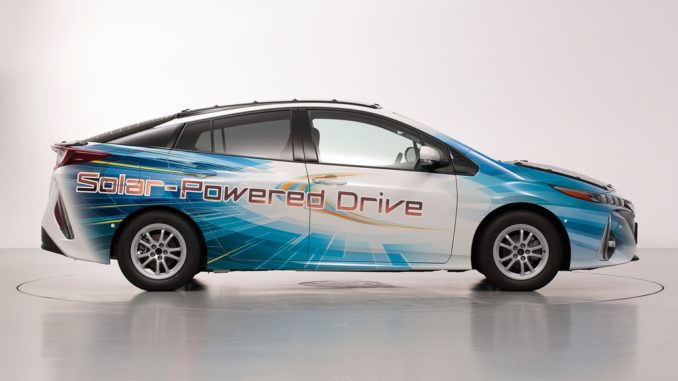
A plan to commence public road trials of electrified cars with solar batteries from late July 2019 has been announced by Nedo, Sharp and Toyota.
The tests aim to assess the effectiveness of improvements in cruising range and fuel efficiency of electrified vehicles equipped with high-efficiency solar batteries.
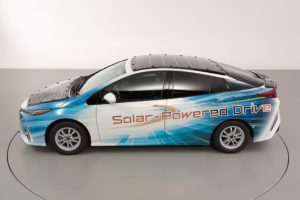 To facilitate the execution of this road test, Sharp modularized its world-class, high-efficiency solar battery cells*1 (conversion efficiency of 34 percent-plus*2), previously developed for a NEDO-led project*3, to create an onboard solar battery panel.
To facilitate the execution of this road test, Sharp modularized its world-class, high-efficiency solar battery cells*1 (conversion efficiency of 34 percent-plus*2), previously developed for a NEDO-led project*3, to create an onboard solar battery panel.
Toyota installed this panel on the roof, hood, rear hatch door, and other parts of its “Prius PHV” and produced a demo car for public road tests.
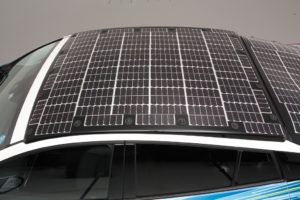 By enhancing the solar battery panel’s efficiency and expanding its onboard area, Toyota was able to achieve a rated power generation output of around 860 W*4, which is approximately 4.8-times higher in comparison with the commercial model Prius PHV (equipped with a solar charging system). In addition to substantially boosting its power generation output, the demo car employs a system that charges the driving battery while the vehicle is parked and also while it’s being driven, a development that is expected to lead to considerable improvements in electric-powered cruising range and fuel efficiency.
By enhancing the solar battery panel’s efficiency and expanding its onboard area, Toyota was able to achieve a rated power generation output of around 860 W*4, which is approximately 4.8-times higher in comparison with the commercial model Prius PHV (equipped with a solar charging system). In addition to substantially boosting its power generation output, the demo car employs a system that charges the driving battery while the vehicle is parked and also while it’s being driven, a development that is expected to lead to considerable improvements in electric-powered cruising range and fuel efficiency.
Toyota plans to conduct the tests under various driving conditions in Toyota City, Aichi Prefecture, Tokyo, and other areas.
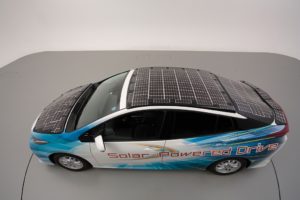 Various data, including the power generation output of the solar battery panel and the amount the drive battery is charged, will be obtained and verified, and then used in the development of an onboard solar recharging system. Toyota plans to share a selection of trial data results with NEDO and Sharp.
Various data, including the power generation output of the solar battery panel and the amount the drive battery is charged, will be obtained and verified, and then used in the development of an onboard solar recharging system. Toyota plans to share a selection of trial data results with NEDO and Sharp.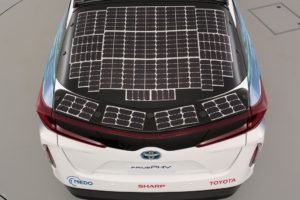 The PV-powered Vehicle Strategy Committee*5 (PV: photovoltaic), sponsored by NEDO and other entities will evaluate the benefits based on improvements in CO2 emissions reductions and convenience, such as the number of times a vehicle requires recharging.
The PV-powered Vehicle Strategy Committee*5 (PV: photovoltaic), sponsored by NEDO and other entities will evaluate the benefits based on improvements in CO2 emissions reductions and convenience, such as the number of times a vehicle requires recharging.
The goal is to contribute to the creation of a new solar battery panel market, including the transport sector, and find solutions for energy and environmental issues.
*1 High-efficiency solar battery cell
Development of the above cell was carried out by a NEDO-led project. Applications were envisaged for the
power generation business to achieve a cost of ¥7/kWh. The project aims to focus on the high conversion efficiency rate and verification of its potential for use in vehicles.
https://www.nedo.go.jp/english/news/AA5en_100070.html
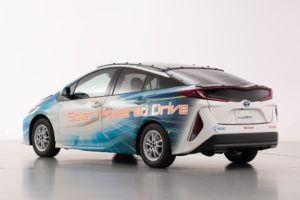 *2 Conversion efficiency of 34percent-plus
*2 Conversion efficiency of 34percent-plus
Calculated based on cell output (as measured by Sharp) under AM1.5 G standard solar battery test conditions as stipulated by international standards.
*3 NEDO project
Project: Development of high performance and reliable PV modules to reduce levelized cost of energy; research and development of innovative new structure solar cells; research and development of ultra-high efficiency and low-cost III-V compound semiconductor solar cell modules Period: FY 2016 to 2020
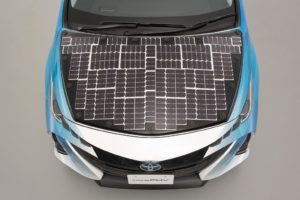 *4 Approximately 860 W
*4 Approximately 860 W
Total module output based on calculation of cell output (as measured by Sharp).
*5 PV-powered Vehicle Strategy Committee
Established by NEDO in April 2016 to conduct research and investigate automotive photovoltaic systems with the goal of further contributing to finding solutions for energy and environmental issues and to create new markets.
Source: Toyota Motor Corporation


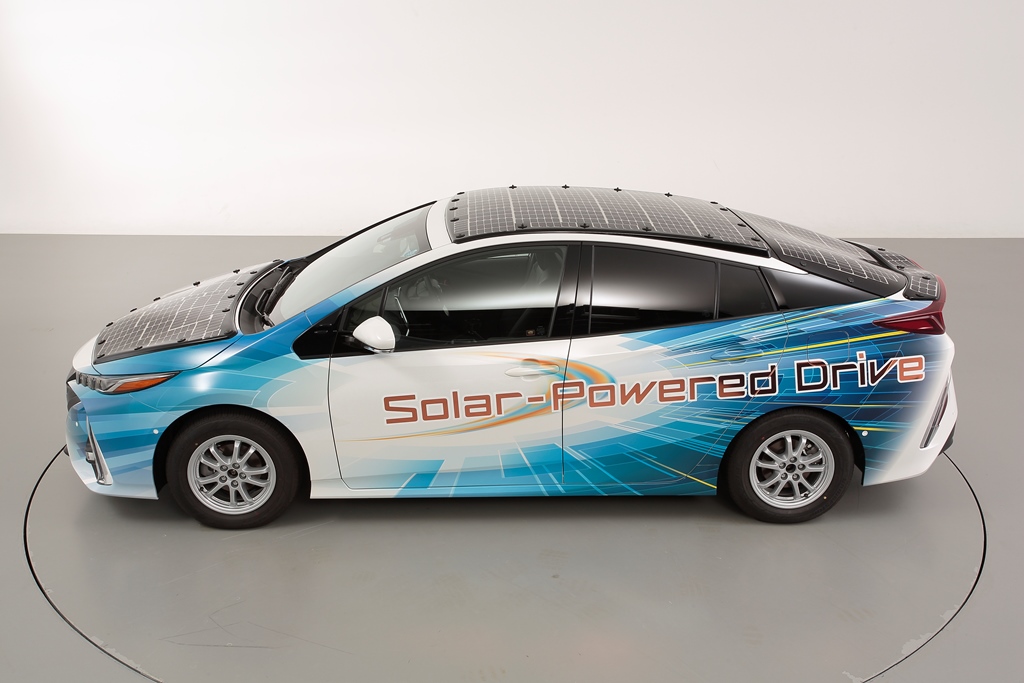
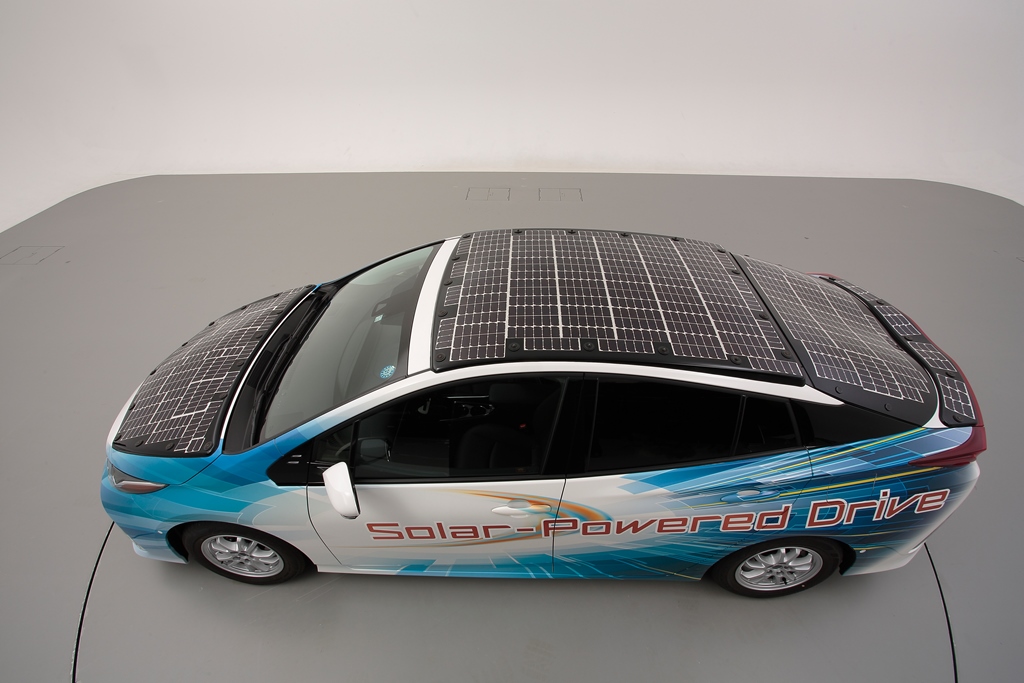





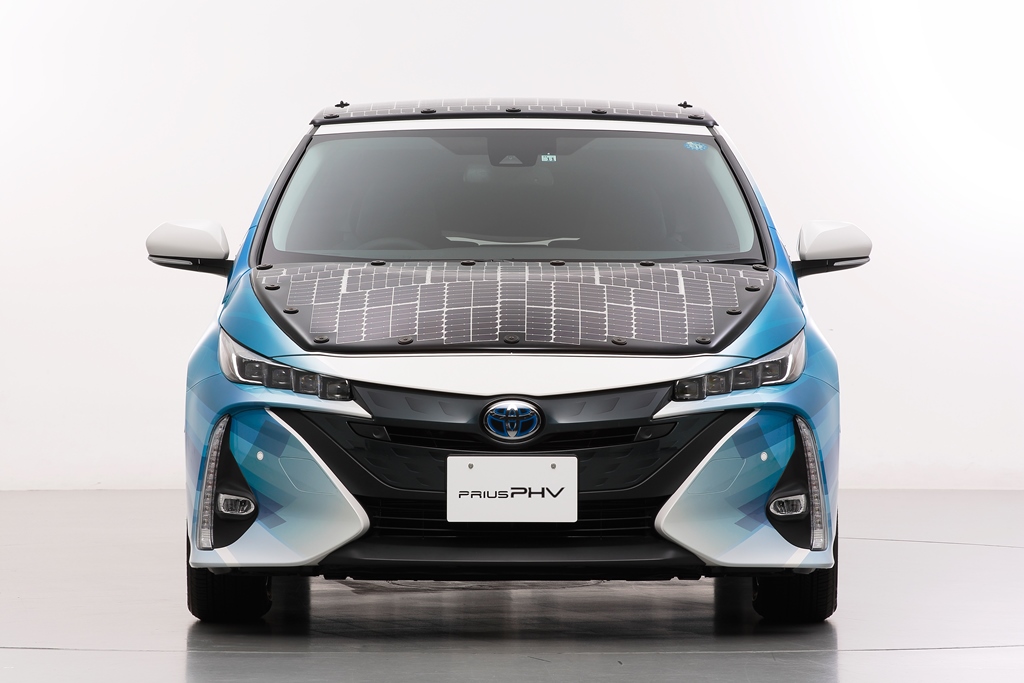
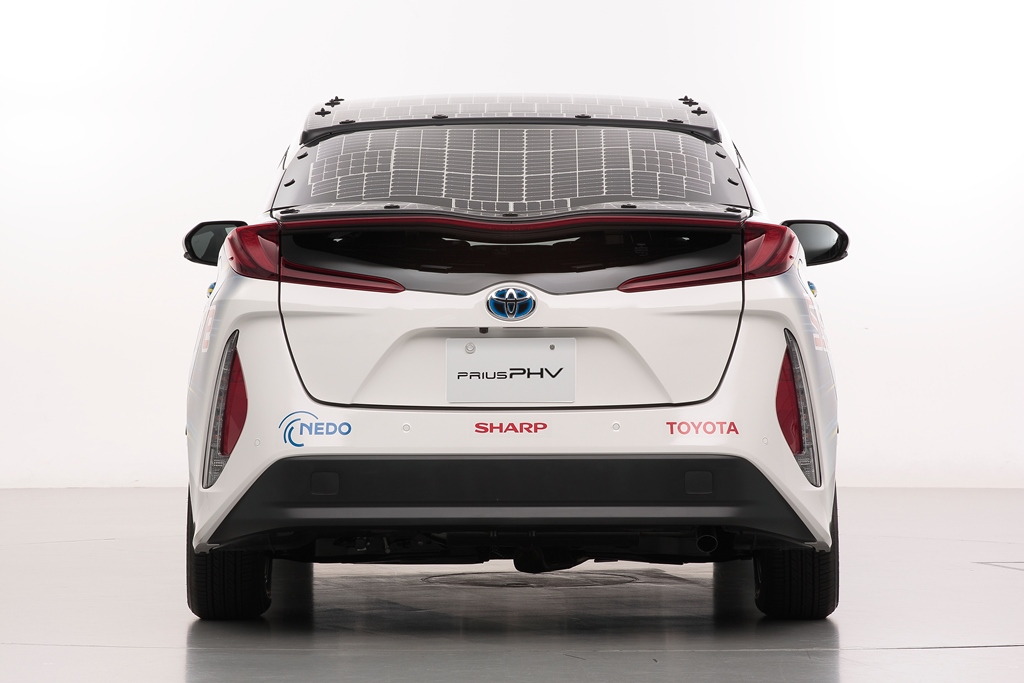

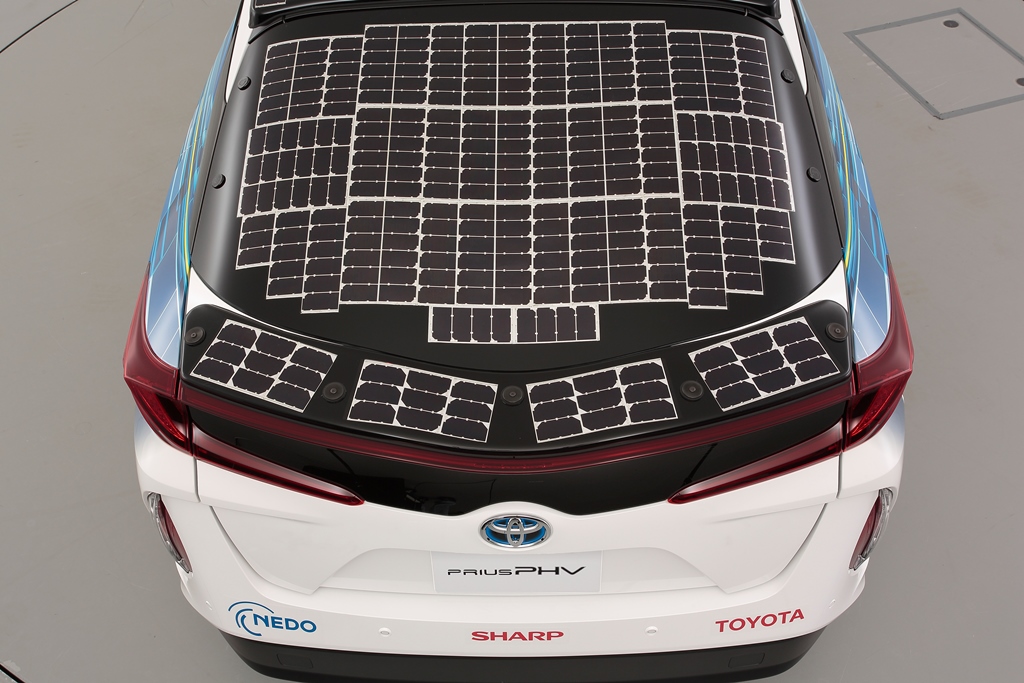



Be the first to comment